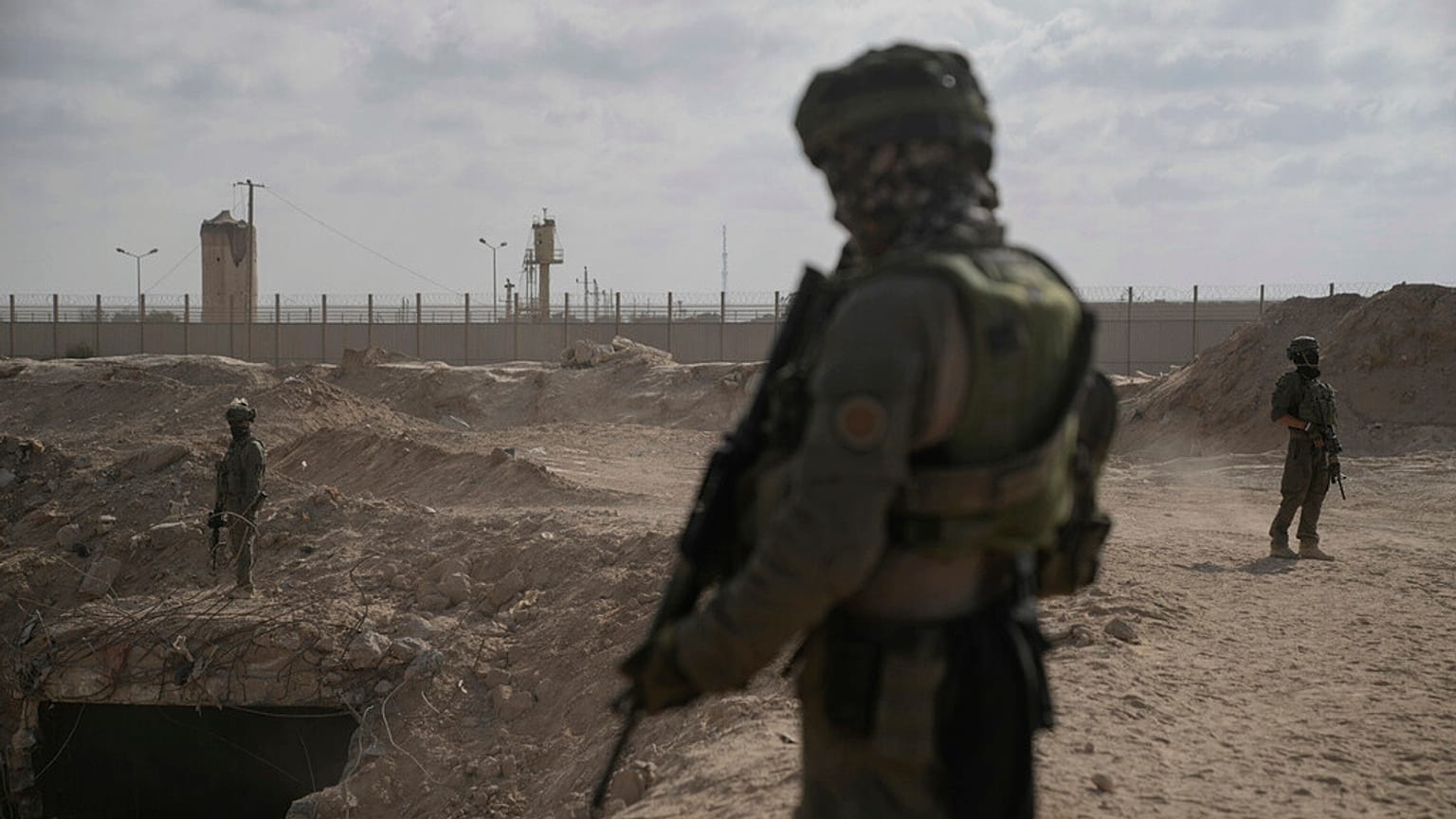Israel's refusal to leave the Philadelphi Corridor threatens to collapse a fragile ceasefire deal with Hamas.
Israel does not intend to withdraw from a strategic corridor in Gaza in the coming days, an Israeli official has said, in a move that could endanger the country's ceasefire agreement with Hamas.
Under the terms of the deal, Israel is due to start pulling its soldiers out of the Philadelphi Corridor, an 8.6-mile-wide strip of land by Gaza's border with Egypt, on Saturday.
Israeli troops are supposed have completed their withdrawal from the area by 9 March.
However, an unnamed Israeli official said on Thursday that the country's army would remain there in order to prevent weapons smuggling by Hamas.
Israel's Defence Minister Israel Katz said that he recently saw smuggling tunnels there. However, Egypt claims it destroyed such tunnels years ago and that it has prevented smuggling through a military buffer zone.
Hamas has said any Israeli attempt to stay in the corridor would be a "blatant violation" of a ceasefire agreement, which took hold in January.
Hours before Thursday's announcement about the Philadelphi Corridor, Hamas released the remains of four Israeli hostages in exchange for more than 600 Palestinian prisoners, marking the last planned swap of the ceasefire's first phase.
The remains were confirmed to be those of Ohad Yahalomi, Itzhak Elgarat, Shlomo Mantzur and Tsachi Idan, according to the Hostages and Missing Families Forum, which represents the families of the captives.
Most of the Palestinians who were released returned to Gaza, where they had been rounded up after the 7 October attack and held without charge on security suspicions.
Their release was delayed on Saturday by Israel who claimed, alongside the Red Cross, that Hamas' practice of parading hostages before crowds and cameras during their release was humiliating for the hostages.
Hamas released the four bodies to the Red Cross in Gaza overnight without a public ceremony.
The first phase of the ceasefire agreement, which is scheduled to end this weekend, has seen the release of dozens of Israeli hostages and of hundreds of Palestinian prisoners and detainees.
Discussions about the second phase of the deal were supposed to start weeks ago. On Thursday, Israeli Prime Minister Benjamin Netanyahu said he had sent negotiators to Cairo to resume the talks.
US President Donald Trump’s Middle East envoy Steve Witkoff, who is expected to visit the region in the coming days, has been pushing both sides to begin such negotiations.
On the Israeli side, Prime Minister Benjamin Netanyahu has vowed to return all the hostages and destroy the military and governing capabilities of Hamas — goals that have both been endorsed by Trump.
These aims might not be compatible with those of Hamas, who has said it will release the remaining hostages in exchange for Israel's complete withdrawal from the Gaza Strip.















